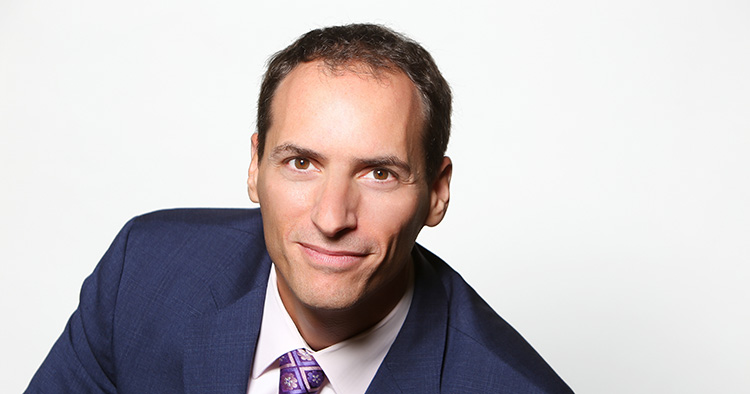Conference to tackle new approaches for law schools, lawyers and legal technologists

Aril Kaplan
Ari Kaplan speaks with Larry Bridgesmith, an adjunct professor at Vanderbilt Law School and the co-creator of the school's Summit on Law and Innovation, which will take place April 30 in Nashville, Tennessee.
This Q&A has been condensed.
Ari Kaplan: Tell us about your background and the genesis of the Summit on Law and Innovation.
Larry Bridgesmith: I want to be a part of helping lawyers understand what’s happening in the world around them because it’s affecting their economic opportunities, ethical obligations and lives. That’s why there’s a SoLI, which is really intended to break down the silos that we’re so fond of building. It’s a natural human response to close ourselves off and speak inside the echo chamber where everybody sees and thinks the same way. There is so much more that is taking place because technology is proliferating at an exponential rate. We need to be able to work across our disciplinary silos and allow what Cat Moon, the co-organizer, and I have discovered is the power of cognitive diversity. When people with different types of professional expertise look at the same problem, a lot more creativity can come out of it, and that’s what SoLI is all about.
Ari: There have been a number of law school-sponsored conferences in this area recently. How does this event differ?
Larry: For conferences to be of value, they must engage the participants from the get-go. And that’s how this conference is different from any I’ve ever attended. We are calling the speakers “primers,” and they will present for 20 minutes. We will then have four people igniting further discussions of 10 minutes each. The presenters and the audience will spend the final 30 minutes sharing feedback and ideas. We are describing it as a TED talk squared because we want the people with knowledge and insights to share them with each other, challenge one another, and then engage the audience in roundtable-facilitated conversations about what they heard and what they would offer. The three questions we will ask are: What can legal education do differently? What can legal practitioners do differently? And, what can legal technologists do differently? Cat Moon and other human-centered design thinkers will then manage and direct a design sprint. At the end of the day, we intend to come out of that, not having closed the conference but merely opened a dialogue with whatever challenges, projects, and consortia arise. We will then invite attendees in the room and viewing via live-stream to get engaged.
Ari: What trends are driving the themes that the conference has focused on?
Larry: The highest price increase for the last 20 years is health care. The next area on the list is higher education, and just below that is legal services. The prices continue to escalate while the market is telling us we need better, faster and cheaper. While we can go there when we collaborate, we can’t get there if we stay in our silos because as long as we do we have limited our economic opportunities. That’s a pivotal understanding that half of the world gets. The rest of us can’t understand or won’t understand, so we’ve got to learn from other people who see things in different ways, and showcase innovation and creativity. Sitting around a table of people who think the same way we do is not as valuable as engaging others who see the same problems but from a radically different perspective. That is how we can change things.
Listen to the complete interview at Reinventing Professionals.
Ari Kaplan regularly interviews leaders in the legal industry and in the broader professional services community to share perspective, highlight transformative change, and introduce new technology at his blog and on iTunes.



